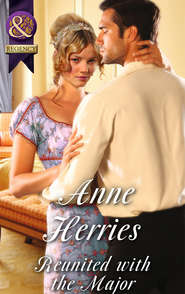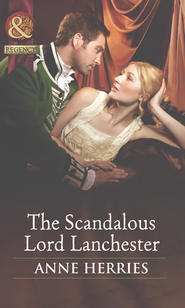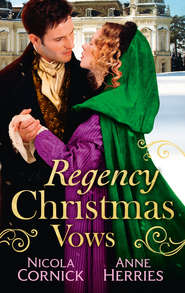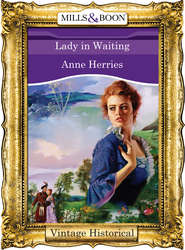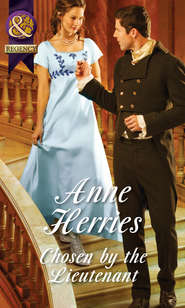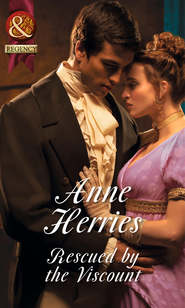По всем вопросам обращайтесь на: info@litportal.ru
(©) 2003-2024.
✖
Married By Christmas
Настройки чтения
Размер шрифта
Высота строк
Поля
‘I have said that you may go in the mornings,’ Lady Wainwright told her. ‘You know that I have taken up bathing for the sake of my health. I shall not need you until teatime, Jo. You may wish to visit other friends, of course, but I am sure you can spare two or three mornings this coming week.’
‘Yes, certainly,’ Jo said. She was very accustomed to such tasks and willing to be of service. ‘I shall enjoy it, though on Tuesday mornings I have the debating society, and on Thursdays I visit a friend, as I have today.’
‘What friend is that?’ Lady Wainwright asked. ‘I know it was not Chloe—she was at the Pump Room with her mama and inquired after you.’
‘Mrs Ellen Beverley, Aunt. I told you. She is a widow and I went to her aid her when she was unwell. We have become friends.’ Jo knew that if she told her aunt that Ellen was related by marriage to Lord Beverley her attitude would change completely, but her friend was determined not to trade on her husband’s family and Jo must keep that part of her identity a secret until she was given permission to reveal it.
‘Well, as long as you do not spend all your time with her. We are promised to Mrs Marsham and Chloe this evening. You have not forgotten?’
‘They are holding a card party,’ Jo said. ‘I had not forgotten, Aunt.’
‘Tomorrow is Friday,’ the Reverend Browne said. ‘Perhaps you would come to the church hall at ten—if that is not too early for you?’
‘No, that will do very well,’ Jo said and smiled. She could leave after two or three hours and perhaps call to see Ellen on her way home. ‘I shall enjoy helping you, sir. Please tell me something of your good causes—are they here in Bath or elsewhere?’
‘I have several causes I feel worthy of my attention,’ he replied, giving her a look of approval, for not all young ladies would wish to spend their time helping the poor when they might be enjoying the delights of Bath. ‘I support a home for orphaned children in Bath itself, and similar ones in London—but I also send money to overseas missions, Miss Horne. We must do what we can to educate the heathen and alleviate their ignorance.’
‘And their poverty, I hope, sir? Papa told me that the people live in terrible circumstances in some countries, perhaps even worse than in the slums here.’
‘Ah, yes, I believe your father was also a man of the church, Miss Horne?’
‘Papa was a wonderful man,’ Jo said, her eyes lighting up. ‘He taught all of us that it is our duty to be charitable and caring towards others—and he said that we must see it as a privilege to help them. I am proud to be his daughter.’
‘Ah, yes, a worthy sentiment,’ the Reverend Browne said and beamed with pleasure. ‘I have seldom met a young woman who thinks as deeply as you have on these matters, Miss Horne. It is a delight to have made your acquaintance.’
‘Oh, do not praise me too highly, sir,’ Jo said. ‘I enjoy helping with these things, and therefore it cannot be held a duty.’
If anything, the Reverend looked more approving. However, he abandoned the subject in favour of others, speaking with some intelligence about the political situation, which was quite troublesome for it seemed certain that there must be yet another war with the French. After thirty minutes he took his leave, touching Jo’s hand for a moment as she escorted him to the door and thanking her once again for her promise of help.
‘I am only too glad to be of help,’ Jo said and meant it sincerely, for she liked doing the kind of task that he had asked of her and had often assisted her papa in much the same way. ‘Thank you for calling, sir.’
Jo returned to the drawing room, where her aunt gave her what could only be a look of respect.
‘That was very well done,’ Lady Wainwright said. ‘You showed yourself to be just the sort of gel that a man in his position would wish to know. I am sure that he liked you. If you continue in this way I believe he may make you an offer, for I have it on good authority that he is looking for a wife. It would be just the thing for you, Josephine—and you could hardly expect to look higher. I believe he has a small allowance from his family as well as his stipend, which means he can afford to marry.’
Jo stared at her in disbelief, for her aunt seemed to think that it was a perfect match. ‘I hardly know Mr Browne, Aunt. He seems pleasant enough and speaks well of many things, but I am not certain we should suit one another. Indeed, I do not yet know if I wish to marry anyone.’
‘That is ridiculous! Every gel must marry. It is expected and the only possible future—unless you wish to remain at home for ever?’
‘I should like to be sure that I could be happy in my life, and I do not think that the kind of marriage you envisage would bring me happiness, Aunt. I think that I might find his company tedious if I were obliged to live with him.’
‘How can you possibly know that?’ her aunt demanded, the familiar look of annoyance returning to her face. ‘You said yourself that you do not know him.’
Jo realised her mistake. She could not possibly tell her aunt that she would never marry the Reverend Browne, even if it meant that she remained single all her life. Lady Wainwright would simply become angry, and it made life so uncomfortable. For once it might be better to brush over it as easily as she could. After all, she did not dislike Mr Browne, and he was just the kind of man she had once thought her sister Marianne might have married.
‘Yes, as you say, Aunt. I cannot know. We have hardly met and one should be certain about these things, for to marry in a rush would be both unseemly and perhaps foolish—do you not think so?’
Her aunt looked at her suspiciously, for the answer was too measured to be Jo’s true sentiments, unless she had changed her ways overnight.
‘Do not imagine you can fool me, Josephine. I am merely pointing out a possible chance to you, and one that you would be well advised to consider. You will not get a second chance for a visit like this, and you may grow bored with being at home. Most women prefer their own home—and children. I know that you like children, Jo. How can you content yourself to think that you might never hold your own child in your arms?’
‘But what of liking and respect, Aunt? You notice that I do not speak of love, for I am not sure it exists, though Marianne was certainly in love. But one should at least like the man one marries—do you not agree?’
‘Yes, of course, and I should never dream of suggesting that you marry a man who was not worthy of your consideration—but I believe Mr Browne is a man that many girls would be glad to marry. Especially those who have no fortune.’
‘I expect you are right, Aunt. Would you excuse me now, please? I think that perhaps I should change for the evening.’
Jo went upstairs to her own room. After she had finished dressing, she sat down at her dressing table and looked at her hair. If only it was a pretty honey blonde like Marianne’s and straighter!
Picking up her brush, she tugged at the tangled curls, pulling them back and securing the knot at the back of her head with pins, into which she pinned a spray of silk flowers. Tendrils of flame-coloured hair had escaped to curl attractively about her face. She sighed, because she knew that nothing she could do would tame it completely.
What did it matter? Jo fastened her mother’s pearls about her throat and applied a dab of cologne to her wrists and behind her ears; the perfume smelled faintly of violets, a very soft delicate scent. Satisfied that she could do no better with her appearance, she went downstairs to wait for her aunt in the parlour. It was a chance to read for a few minutes, which was a treat, because Lady Wainwright did not like to see her with her nose in a book too often. She was just becoming engrossed in the story when she heard the sound of footsteps and looked up to see that her aunt had arrived.
‘Reading again?’ Lady Wainwright looked annoyed. ‘I hope you haven’t spoiled your gown sitting there. I do hate to see girls in creased gowns when they arrive for the evening. You should have walked about the room until I came down.’
‘I do not think that sitting here has harmed my dress, Aunt.’
‘Well, you are fortunate if it has not. Are you ready? It is already past six and we are engaged for half-past.’ She looked about her and made a sound of annoyance. ‘I have left my fan. Please go upstairs and fetch it for me. It lies on my bed.’
‘Yes, Aunt.’ She ran upstairs, and found the fan on the dressing chest after some few seconds of searching. Her aunt gave her a hard look when she came back down, but said nothing, taking the fan without a word of thanks.
They went out to the carriage, neither of them speaking to the other during the short ride, Jo because she did not have anything in particular to say, and Lady Wainwright because she was annoyed about something. Jo wasn’t sure whether she had caused her aunt’s mood or whether it was to do with something quite different, but it was clear to her that the best course of action was to remain silent.
Mrs Marsham had taken one of the larger houses in Bath, but her rooms were already overflowing with guests when they arrived. Jo was surprised for she had expected a small card party, but she soon discovered that cards were to be only a part of the evening’s entertainment. A quartet was playing music as they entered, and Chloe told her that one of the drawing rooms had been cleared so that the younger people could dance.
‘There is room for no more than ten couples,’ Chloe said, her eyes glowing. ‘But the older ladies do not dance and will content themselves playing cards or simply listening to the music.’
‘I am not sure that I am dressed for dancing,’ Jo said, because she was wearing a very simple evening gown. ‘I did not expect it.’
‘Oh, but you look very nice,’ Chloe said. ‘You always do—though I think it is a shame that you scrape your hair back so tightly. Do you never think of wearing it in a softer style?’
‘Never! I should look like a gypsy,’ Jo said and Chloe went into a fit of the giggles.
‘Oh, you do say such droll things, Jo!’ she cried. ‘A gypsy, indeed. Mama would have a fit if I were to say such a thing.’
‘But you always look so elegant,’ Jo said and Chloe gave a pleased nod of her head.
Chloe had only waited for Jo to arrive. Her mother had released her almost at once, and the two girls went into the long room together. Jo saw that several young men she had met at the Assembly rooms were present, including Mr Tanner, and it was not long before both girls were dancing. Surprisingly, Jo found that she was sought after almost as eagerly as Chloe, and she did not sit out one dance, which might have been because Mrs Marsham had cleverly invited more gentlemen than young ladies.
It was not until an hour later that Jo felt a tap on her shoulder and turned to find herself looking at Mr Hal Beverley. She had not noticed him come in, because she had been enjoying herself, and her eyes were bright with laughter.
‘Good evening, Mr Beverley,’ she said. ‘Chloe did not tell me that she expected you this evening.’
‘Did she not, Miss Horne?’ Hal’s brows rose. ‘Now why should that be, I wonder? For it must be an object of great public interest if I am to attend a card party, must it not? Indeed, had I thought, I should have had a blast of horns announce me.’
‘You are a wicked tease, sir,’ Jo said. ‘You knew very well what I meant.’
‘Did I?’ His eyes gleamed with unholy amusement. ‘Pray give me the pleasure of this next dance, Miss Horne—unless it is promised to another?’






